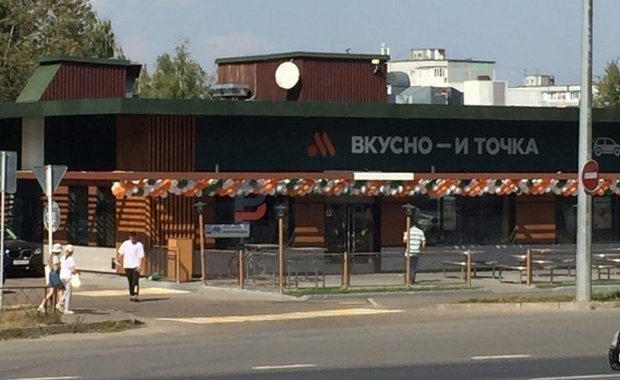‘It is clear why we often write the names in Latin: to emphasise the connection with imports’
Cyrillisation of brands: a trend or a craze?
From Latin to Cyrillic: Henkel Russia has started russifying the brand's products, retaining the design, but translating foreign names in Russian spelling — Вернель, Персил, Бреф. Perhaps, the trend towards Cyrillisation will continue in 2023, being fixed by law.
Brands are leaving, names are changing
Since the beginning of the year, Henkel products have been produced in our country by an independent company, however, with the Latinised name Lab Industries. Henkel announced its withdrawal from business in Russia last spring.
At the beginning of the month, Danone acted differently, which in the autumn of 2022 decided to sell the business in Russia, and now has included Danone, Activia, Danissimo yoghurts and curds in the Prostokvashino brand, which previously represented milk, kefir, cottage cheese.
It turned out differently for the French cosmetics chain L'Occitane, which left Russia in June 2022, and their stores began to be called “Л’Окситан”. After that, the French owners demanded to choose a name that would not be associated with the original — so the trademarks SoBeautiful and “СоуБьютифул” appeared.
Previously, the Cyrillic spelling of foreign brands could only be seen on advertising posters, in small print and with an asterisk, since according to the law “On the State Language of the Russian Federation” all advertising information on the territory of the Russian Federation must be in Russian, and the law “On Consumer Rights Protection” states that advertising messages must be understandable to any consumer in Russia.
Let us remind that in March last year, the member of the State Duma Committee on Security and Anti-Corruption, Sultan Khamzaev, proposed banning advertising street signs in foreign languages in Russia. Ironically, one of the shopping centres in Barnaul made play of this news by using photo editors to “translate” the names of major brands literally — this is how “Хлопок” (Cotton), “Тянуть и медведь” (Pull and Bear) appeared. And deputies of the Legislative Assembly of Orenburg Oblast introduced an initiative to the Federal Antimonopoly Service, according to which only Russian or transliteration should be used in commercial signage.

“It's not patriotic”
In February 2023, the head of Krasnodar, Yevgeny Naumov, criticised the abundance of signage in foreign languages, instructed to communicate with the owners of advertising, claiming that every second is ready to make concessions, since foreign signage is “not patriotic.”
“In London, Washington, probably there are not 90% of signage in Russian. Work up this issue," the Krasnodar TV channel quoted Naumov at the time.
According to the head of the creative agency Teoriya, Ildar Ayupov, the situation resembles the arrival of foreign brands in the early 1990s in the USSR, when they themselves translated their brands into Cyrillic.

At the same time, Ayupov points out that visually Cyrillic often does not look as nice as Latin.
“On average, it looks worse. But I think it's an interesting trend. At the same time, the transition itself will be to the detriment of the brand, there is a subconscious connection with the USSR, with something not very high-quality. But, on the other hand, one can recall a lot of interesting popular brands with Russian names, such as “Добрый” juice . Which was invented by Coca-Cola!
In February 2023, President Vladimir Putin signed the law on the state language. It provides for the restriction of the use of foreign words and obscene language. The law emphasises “the unifying role of the Russian language as the state language of the Russian Federation in the single multinational state”. It also “expands and specifies the areas in which the use of the state language of the Russian Federation is mandatory”: education, state and municipal information systems, information for consumers of goods and services.